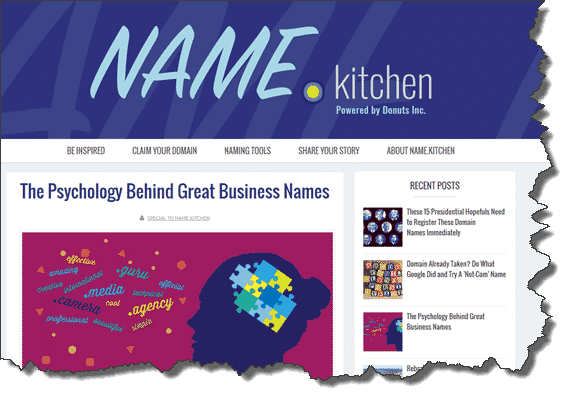
There is a myth about domain names which suggests that “all the good ones are gone”. That just is not true. People who tell you this are really saying they don’t have any creative ideas as to domain names. You might want a domain name such as “SalesGenius.com” only to find someone else has bought it. But if all the “Sales Genius” options had gone, you could get “SalesGenius.expert” or “SalesGenius.academy” or one of more than 170 possible combinations of “Sales Genius” which are still available to anyone who wants to buy them. Or I could just buy “SalesGeniusBook.com” which is still available (but might not be by the time you read this…!).
There are virtually endless possibilities for domain names if you only think about them for a while and consider things from a creative perspective. Yes, the domain name you really want might have gone, but an extra word here or there is all you need to add and you are very likely to be able to get what you want.
One way out of the situation of domain names having gone is supposedly to use a hyphen. But I’d avoid that. For a start, there is the possibility of confusion with the alternative website without the hyphen. Plus you have the awkward necessity of telling people to use a hyphen when they type in your domain name. Hyphens are ignored by Google and other search engines, so there is also the danger that you could lose out in ranking terms with the alternative site that does not have a hyphen.
Choosing the right domain name requires you first to think about how you will be using the name. If it is only ever going to appear online, as a link, then the length of the name or the wording you use is largely unimportant.
However, if you are going to use the domain name in “word of mouth” situations, such as when you are talking with potential visitors or mentioning your domain name in a business presentation, then you need a short and memorable name. Also, short names help when it comes to public relations – newspapers will not print long domain names as they break up over narrow columns. Plus if you have a short or memorable domain name it is easier to use on the radio, for instance.
If you are not immediately creative, use the tools at Name.Kitchen.
One thing you also need to consider is the psychological impact of your domain name and the psychology behind great business names. Also, think about what conjoined words could be misread as. The company “Pen Island” that sells a variety of pens probably has more than its fair share of interest with its domain name “www.penisland.net“. However, it does pass the test for memorability.
You want your domain name to be memorable, easy to say, straightforward to type and that doesn’t sound like something it is not. You also do not want things that can confuse, such as words that can be misheard or easily spelled incorrectly. Nor do you want domain names using words that are different in American and British English.
But why do you even need to consider new domain names anyway? If you already have a website, what value is a new domain name? Domain names can be used for specific campaigns to redirect people to particular pages on your own website, for instance. Or they can be used for new products and services. Just because you already have a website, does not mean you do not need new domain names.

